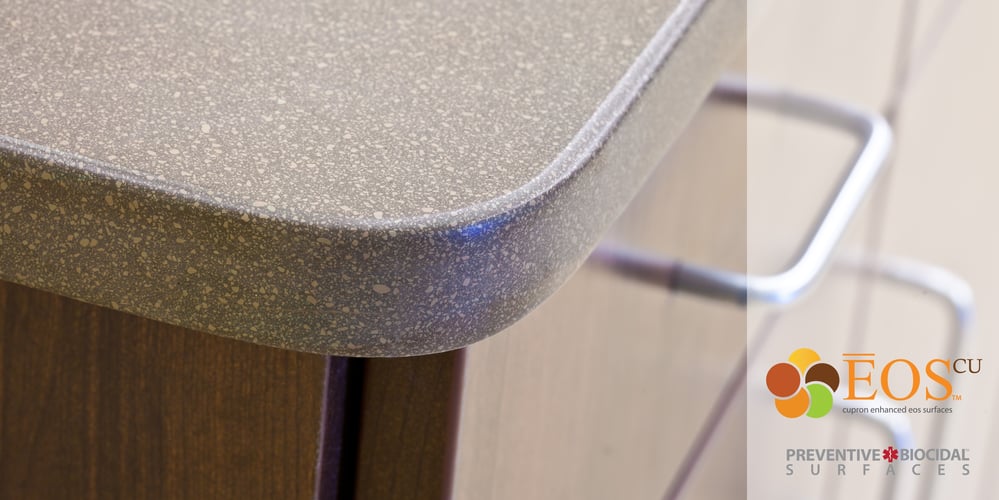Copper's sterilizing properties have been used since ancient times. More recently, researchers have discovered that copper alloys destroy MRSA, norovirus and other pathogens. These materials damage bacterial DNA and respiration, leading to cell breakdown, and inactivate certain viruses, often within hours.
...
When Sentara Leigh Hospital in Norfolk, Va., decided to tear down and rebuild in stages, it took the opportunity to install copper-infused products in the first wing it replaced, which was completed in 2013. Hard surfaces, such as bed rails, sinks and countertops, were made with a copper-impregnated composite, and patients received copper-laced linens and gowns.
The hospital educated its staff and patients on the initiative. It was especially well-received by families and patients, said Dr. Gene Burke, executive medical director for clinical effectiveness with Sentara Healthcare, the hospital's parent system.
...
...
Ultimately, the new wing had 78% fewer healthcare-associated infections related to multidrug resistant organisms including C. difficile, compared with a baseline period, Burke and others found when they studied infection rates in the two hospital sections. And infection rates didn't change in the old wing.
Their study concluded that hard surfaces and linens imbued with copper “may be useful technologies” to prevent healthcare-acquired infections, but that additional research was necessary to determine whether reduced infections were attributable to the use of copper.
...
Using copper isn't feasible for all hospitals. Sentara was able to install hard surfaces with copper-impregnated material because it was being rebuilt. Retrofitting would have been disruptive to patients, Burke said.
But hospitals can still use copper for infection control without complete retrofitting. Sentara, for instance, is planning to outfit its other 11 hospitals with copper-laced textiles, overbed trays, bedside table tops and bed rails. “We are waiting for our new construction to go in and replace all the horizontal surfaces,” Burke said.
![EOScu Logo - Dark - Outlined [07182023]-01](https://blog.eoscu.com/hubfs/Eoscu_June2024/Images/EOScu%20Logo%20-%20Dark%20-%20Outlined%20%5B07182023%5D-01.svg)





